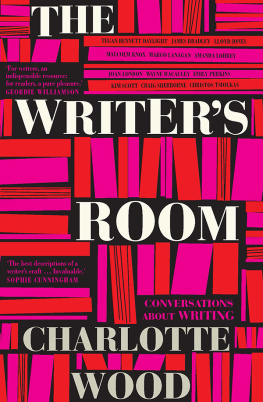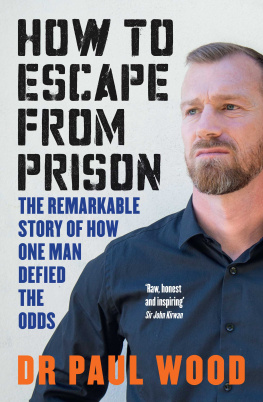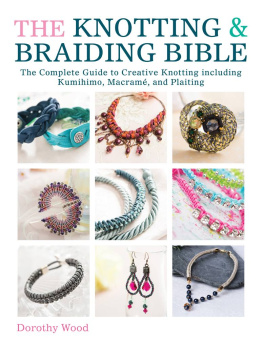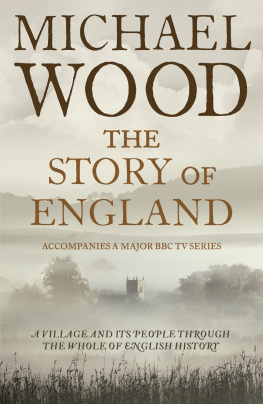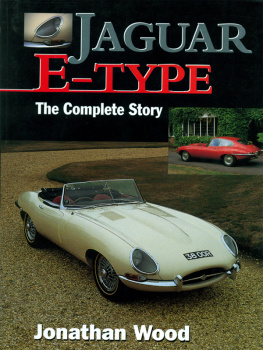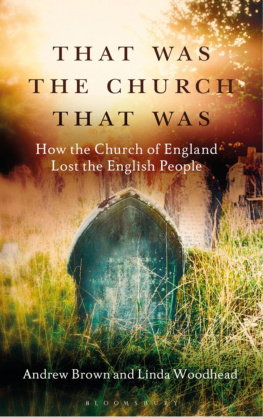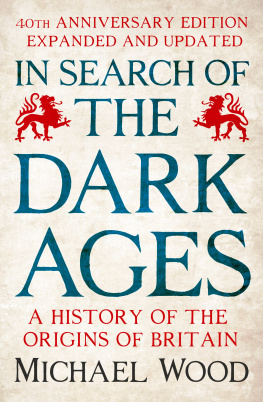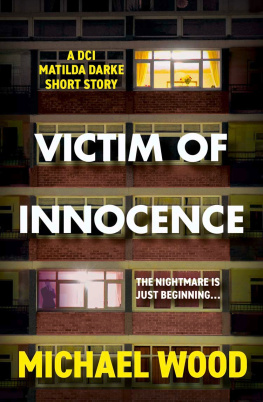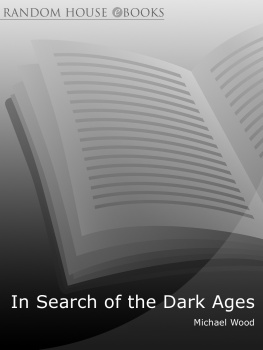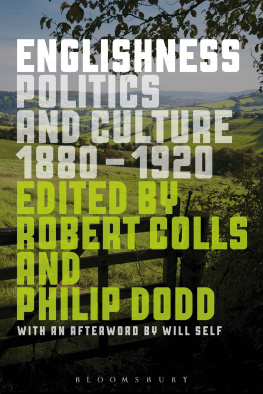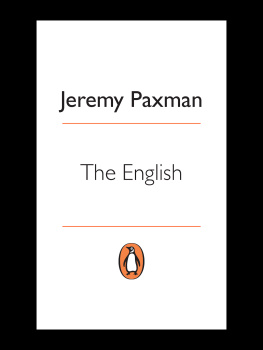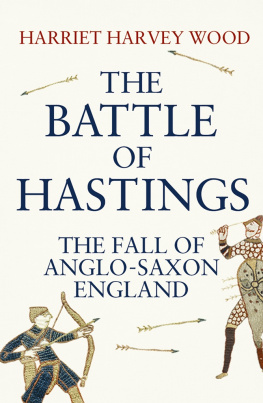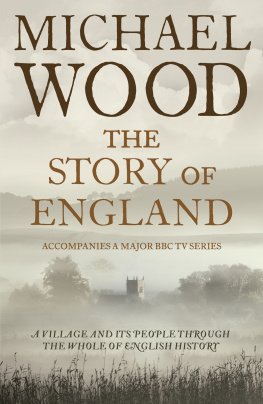PENGUIN BOOKS
IN SEARCH OF ENGLAND
Michael Wood was educated at Manchester Grammar School and Oriel College, Oxford, where he did postgraduate research in Anglo-Saxon history. Since then he has worked as a journalist, broadcaster and film-maker, with over sixty films to his name. His book In the Footsteps of Alexander the Great, based on his BBC TV series, was a number-one bestseller.
He lives in London with his wife and their two daughters.
In Search of England
Journeys into the English Past
MICHAEL WOOD

PENGUIN BOOKS
PENGUIN BOOKS
Published by the Penguin Group
Penguin Books Ltd, 80 Strand, London WC2R 0RL, England
Penguin Putnam Inc., 375 Hudson Street, New York, New York 10014, USA
Penguin Books Australia Ltd, 250 Camberwell Road, Camberwell, Victoria 3124, Australia
Penguin Books Canada Ltd, 10 Alcorn Avenue, Toronto, Ontario, Canada M4V 3B2
Penguin Books India (P) Ltd, 11 Community Centre, Panchsheel Park, New Delhi 110 017, India
Penguin Books (NZ) Ltd, Cnr Rosedale and Airborne Roads, Albany, Auckland, New Zealand
Penguin Books (South Africa) (Pty) Ltd, 24 Sturdee Avenue, Rosebank 2196, South Africa
Penguin Books Ltd, Registered Offices: 80 Strand, London WC2R 0RL, England
www.penguin.com
First published by Viking 1999
Published in Penguin Books 2000
Copyright Michael Wood, 1999
All rights reserved
The moral right of the author has been asserted
Except in the United States of America, this book is sold subject to the condition that it shall not, by way of trade or otherwise, be lent, re-sold, hired out, or otherwise circulated without the publisher's prior consent in any form of binding or cover other than that in which it is published and without a similar condition including this condition being imposed on the subsequent purchaser
Contents
PART ONE
Myth and History
PART TWO
Manuscripts and Mysteries
PART THREE
Landscapes and People
List of Illustrations
COLOUR PHOTOGRAPHS
BLACK AND WHITE
SECTION OPENINGS
Introduction
In the Dark Ages, when Celtic bards sat round their fires and told tales, The Matter of Britain was the chief object of care. By that they meant the great theme of Celtic British history: the dispossession of the lowland Celts by the invading English, the myths of Arthur and the rest, the loss of Celtic Britain. This book looks at some aspects of what one might call the Matter of England. It is a series of stories which, directly or indirectly, touch on some questions of English history and identity and the transmission of tradition. They are stories which have particularly fascinated me over the years of making films and writing books about history. The book is a miscellany, then, but one which I hope adds up to more than the sum of its parts.
My title is borrowed from the account of H. V. Morton's journey written seventy years ago, a story which is the subject of one of the chapters in this book. My search for England, though, is very different from Morton's: where he journeyed the length and breadth of the land and took a broad-sweep view, here I offer a few close-up details, deep sections of English history, taken at different places and different times. My emphasis is in the Early Middle Ages, the ninth and tenth centuries, when the English State was created, and when certain crucial elements become apparent in the English identity. Some stories in the book touch on the great divide of English history, the Reformation of Henry VIII in the 1530s, when an awareness of the Old English (or Anglo-Saxon) past was rekindled, and its manuscripts and monuments began to be recovered, but when also the greatest ever destruction of heritage in these islands took place. But these are contemporary journeys too, for as Great Britain begins to recede, and as the break-up of Britain is dissected by the pundits, older regional identities are reasserting themselves, and new myths are being created to serve them. So the process of history continues all around us: History is now, and England as T.S. Eliot said.
I have divided the book into three sections which I should briefly explain. The first section looks at the transmission of our ideas about history, identity and communal experience through myth, for myth plays just as important a part in the construction of identity as does historical fact indeed it is often difficult to tell them apart!
The second section is more precisely about texts and old manuscripts (which I confess hold a particular fascination for me). These chapters look at the way our early history has been recovered by piecing together fragments, sometimes literally. For example, the key accounts of two of the greatest figures in our history, Alfred and Athelstan, are based on manuscripts which no longer exist. examines what kind of stories can be recovered from an old book: a tale quite in keeping with the sleuthings of the medieval detective William of Baskerville in The Name of the Rose.
In the third section we move out of the library into the landscape: to Devon and Yorkshire, to Durham, Berkshire and Leicester. These chapters look at particular places over time: a house, a wood, a church, a village. For landscapes too constitute a kind of text, which can be deciphered.
Whether about myths, texts, or landscapes, I hope it will become clear that these tales do not just concern the transmission of information. For in recovering them, we learn not only about the past, but about ourselves. The medieval past is not a dead subject.
Finally, these stories are full of detail, from marks in burned manuscripts and medieval tax returns, to cigarette cards and cartoons. Curiously, I feel impelled to apologize for this. I can only say in my defence that it is the detail which really fascinates me. Contract lawyers and diplomatic negotiators have a saying that the devil is in the detail, but to my eyes so are the angels: winged messengers from the past who bring these faint and fragile intimations from past lives every bit as interesting and worthwhile as our own, if not more so. This whole book is assembled from such fragments, for that is the nature of the sources for the first centuries of English history. No one grand narrative of those times will ever be possible; all we can do is use the fragments to conjure up that long-dissolved world which happens to have made us what we are. But perhaps, in the end, that is the most satisfying way to convey the texture, the intricate connections of that lost whole. As a now often maligned but still acute observer of English history, Rudyard Kipling, said:
If England was what England seems
And not the England of our dreams
If she was putty, brass and paint
'Ow quick we'd drop her but she ain't.
Acknowledgements
The origin of these pieces is various. Some, like chapters two and seven, are fresh looks at subjects I have covered in TV documentaries. Some are the by-product of the writing of a book on King Athelstan and his times which has yet to see the light of day. his computer expertise. Prue Cave was an invaluable support once more, correcting the whole text while I was shivering with a film crew in the mountains of Peru. At Penguin, Kate Samano expertly did the final edit of a rather dense typescript. Grainne Kelly found the pictures and Tony Lacey offered much kind support, patience, and good advice which greatly improved my text. Thanks to my agent, Lavinia Trevor, who first suggested putting my English roots pieces together as a book. My last debt is to my family, who put up with obsessive hours spent on medieval texts on top of the often considerable pressures of making films in a small independent film company in the world of late-nineties television: to them my heartfelt thanks, for this, and for everything.


